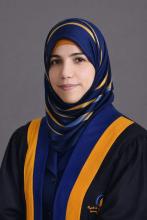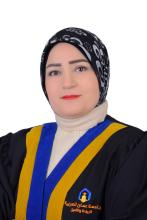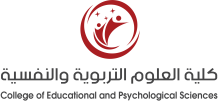Early childhood represents the cornerstone in shaping an individual’s personality and developing their cognitive, psychological, and social capacities. It is during this stage that the foundations of values, attitudes, and behaviors are first formed—foundations that accompany the individual throughout life.
The Early Childhood Education Program aims to prepare well-qualified educators equipped with scientific knowledge and practical skills to work effectively with children during this crucial stage. The program is designed in accordance with the latest global educational and psychological approaches, while remaining grounded in our authentic Arab values and cultural heritage.
At the Department of Educational Psychology and Counseling, we attach special importance to this program, believing that investing in childhood is the deepest and most enduring investment in the future of society.
We warmly welcome all students to the Early Childhood Education Program, with the hope that it will serve as a pioneering step toward preparing teachers and specialists capable of leading positive change in the field of early childhood.
Dr. Rand Arabiyat
Acting Head of Department of Educational Psychology and Psychological and Educational Counseling
The Early Childhood Education Program aims to prepare specialized professionals capable of understanding the developmental needs of young children and applying modern educational methods in teaching and care, in line with international quality standards.
The program focuses on developing students’ knowledge in psychological, social, linguistic, and cognitive development, while empowering them to design stimulating and safe learning environments that ensure opportunities for holistic growth and learning for every child.
It also seeks to strengthen humanistic educational values and social responsibility among students, preparing them to work in early childhood institutions with creativity, professionalism, and ethical commitment.
This is both a scientific and humanitarian program, grounded in the belief that the child is the center of the educational process and the foundation of every genuine societal renaissance.
Vision
Excellence and advancement in the quality of professionally and academically qualified personnel in the fields of Psychological Counseling and Educational Psychology at both the local and regional levels
Mission
To prepare qualified, specialized, and competent human resources who possess strong cognitive, professional, and ethical foundations in the fields of Educational Psychology and Psychological Counseling, capable of meeting community needs efficiently and effectively.
Program Mission
To prepare scientifically and professionally qualified graduates to work with children in early childhood, by developing their educational, psychological, social, and technological competencies, and by providing a contemporary learning environment that meets the standards of quality and sustainable development.
Educational Program Objectives:
- Prepare qualified professional educators capable of effectively caring for and teaching children in early childhood.
- Develop students’ educational, psychological, and health-related knowledge concerning child development and needs across various stages.
- Enable students to design safe, stimulating learning environments that respect individual differences, cultural diversity, and promote active learning.
- Develop students’ observation, assessment, and measurement skills to monitor child development and support early intervention.
- Enhance the use of modern technologies and digital media in teaching, learning assessment, and skill development for young children.
- Instill ethical and professional values while fostering initiative, scientific inquiry, and innovation in the field of early childhood education.
Educational Program Outcomes:
The intended outcome of this program is to prepare graduates who are able to:
- Identify theories and concepts of development and teaching methods in early childhood education.
- Explain the educational, psychological, and health-related aspects influencing learning and development.
- Design interactive, safe, and engaging learning environments based on play and active participation.
- Utilize appropriate tools for observing children and preparing relevant educational reports.
- Employ modern methods and digital technologies to support learning and develop children’s essential skills.
- Apply professional behaviors and educational ethics in the workplace.
Educational Program Objectives:
- Prepare qualified professional educators capable of effectively caring for and teaching children in early childhood.
- Develop students’ educational, psychological, and health-related knowledge concerning child development and needs across various stages.
- Enable students to design safe, stimulating learning environments that respect individual differences, cultural diversity, and promote active learning.
- Develop students’ observation, assessment, and measurement skills to monitor child development and support early intervention.
- Enhance the use of modern technologies and digital media in teaching, learning assessment, and skill development for young children.
- Instill ethical and professional values while fostering initiative, scientific inquiry, and innovation in the field of early childhood education.
Educational Program Outcomes:
The intended outcome of this program is to prepare graduates who are able to:
- Identify theories and concepts of development and teaching methods in early childhood education.
- Explain the educational, psychological, and health-related aspects influencing learning and development.
- Design interactive, safe, and engaging learning environments based on play and active participation.
- Utilize appropriate tools for observing children and preparing relevant educational reports.
- Employ modern methods and digital technologies to support learning and develop children’s essential skills.
- Apply professional behaviors and educational ethics in the workplace.
Mapping between PEOs and SOs:
| PEOs | SOs |
| 1 | 1،2،3،4،5،6 |
| 2 | 1،2 |
| 3 | 3،5 |
| 4 | 2،4 |
| 5 | 5 |
| 6 | 6 |


| Major | Credit Hours | Study Plan |
| Bachelor of Early Childhood Education | 132 |







